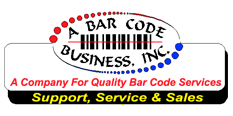The Role of Checking Accounts in Building Financial Security
A checking account is often considered the foundation of personal finance. It provides the primary hub for managing day-to-day transactions, paying bills, and receiving income. While it might seem like just another banking tool, a well-managed checking account plays a crucial role in building long-term financial security.
In this article, we’ll explore how using a checking account wisely can help you create a solid financial foundation and contribute to overall financial health.
1. Managing Cash Flow Effectively
A checking account serves as a central point for handling your income and expenses. Whether you receive a paycheck via direct deposit or transfer money from other accounts, your checking account allows you to monitor where your money is coming from and where it’s going. This oversight is crucial in managing cash flow, ensuring you’re not spending beyond your means and can meet your financial obligations, such as paying bills or making necessary purchases.
By keeping track of inflows and outflows, you can plan for upcoming expenses, prevent overdrafts, and avoid late fees, all of which contribute to maintaining your financial stability.
2. Building Financial Discipline
One of the key benefits of a checking account is that it helps build financial discipline. When you monitor your account balance and regularly review transactions, it encourages mindful spending and better financial habits. Many people find it helpful to set aside money for savings or investments directly from their checking account through automatic transfers, reinforcing the habit of saving. For those looking to diversify their investments, some even use these savings to explore options like purchasing silver bars for sale, which can be a stable and tangible asset.
In this way, the role of checking accounts in building financial security becomes more apparent: it offers a clear snapshot of your financial situation, helping you stay organized and focused on your goals, much like how tracking assets, such as Harrison Lefrak net worth, can offer valuable insights into financial progress.
3. Access to Essential Financial Tools
A checking account offers more than just a place to store money. It provides access to financial tools that can simplify money management, such as online banking, mobile apps, automatic bill pay, and direct deposit. These tools make it easier to stay on top of your finances and avoid late payments or missed obligations.
By using these features effectively, you can streamline your financial management and reduce the chances of financial missteps. For example, setting up direct deposit and automatic bill payments ensures that your funds are readily available to cover bills, reducing stress and enhancing financial security. Additionally, checking accounts for businesses in Hoquiam, WA, can offer local business owners these same benefits, helping them manage day-to-day transactions efficiently.
4. Establishing a Financial Cushion
Maintaining a healthy balance in your checking account allows you to establish a financial cushion, providing a safeguard against unexpected expenses. While a savings account is typically used for emergency funds, having extra money in your checking account can be a convenient buffer, especially for smaller, unforeseen expenses like medical bills or car repairs.
This cushion prevents you from overdrawing your account or relying on credit cards in emergencies, which can lead to unnecessary debt. A well-funded checking account is, therefore, an essential component in creating a safety net that can absorb life’s financial surprises.
5. Building Financial Relationships
Your checking account can also serve as the first step in building a strong financial relationship with your bank. Over time, maintaining a positive balance and responsibly managing your account can open doors to other financial products, such as savings accounts, credit cards, or even loans.
Establishing this relationship with a bank can lead to better terms for future financial needs, such as lower interest rates or higher credit limits. As you build trust with your financial institution, they are more likely to provide favorable options when you need them. And if you need financial consulting services, make sure to get help from experts like займы онлайн.
Conclusion
The role of checking accounts in building financial security is far more significant than many people realize. By effectively managing your cash flow, building financial discipline, using banking tools, maintaining a financial cushion, and fostering strong financial relationships, your checking account becomes a critical tool in your overall financial strategy.
When used wisely, a checking account not only helps you manage daily finances but also paves the way for long-term financial stability and growth.
